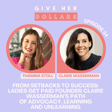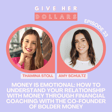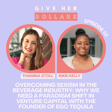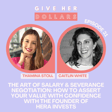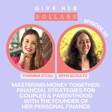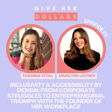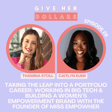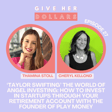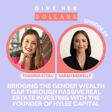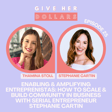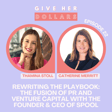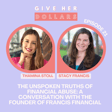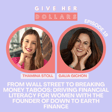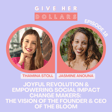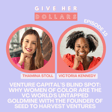
Cultivating Confidence in Startup Investing: A Comprehensive Introduction to Angel & VC Investing with the CEO of Investor Playbook & Founder Playbook
Update: I recently launched my newsletter, The Sheconomist, and would love for you to subscribe: sheconomist.com - I share so many tools and resources that help young, high-achieving women with radical money and career self-advocacy.
----
Are you new to the world of startup investing? Then this episode is for you!
In this episode, Thamina sits down with Bridgette L. Smith, the CEO of Investor Playbook and Founder Playbook. Bridget's mission is to empower underrepresented founders to access capital and grow their businesses.
Bridgette's journey into startup investing began with curiosity and a desire to learn. A few short years later and she is now invested in over 150 startups and is hosting workshops to make startup investing more accessible, especially for minorities.
Bridgette sheds light on the evolving landscape of accredited investors, the different stages of startup investment, and the distinctions between angel investors and venture capitalists.
She also shares valuable insights on creating a personalized investment thesis, finding diverse investment opportunities, and the importance of asking the right questions when evaluating startups.
